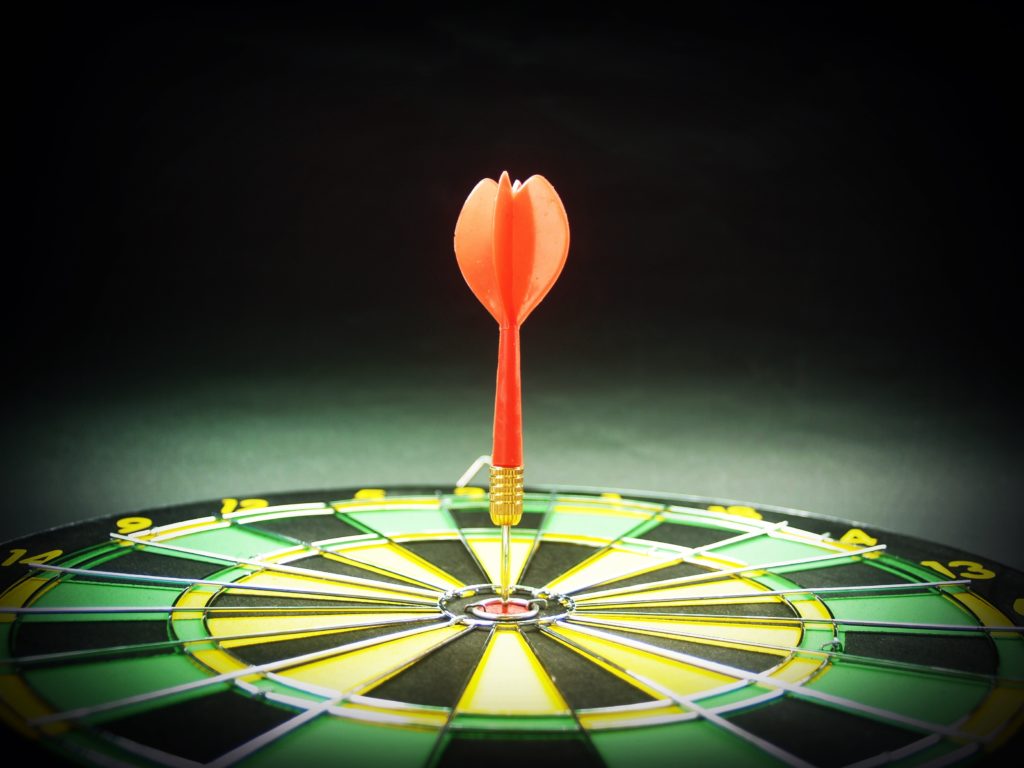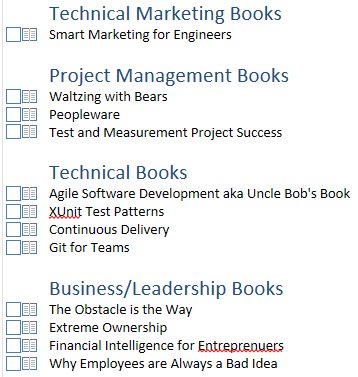Goal Setting in the New Year

Since it’s a new year everyone is talking about goal setting. Because a lot of people struggle with goal setting, there are a lot of different methodologies out there. I’ve been thinking about this a lot in the past few weeks as I lay out some of my goals for 2019. I thought I would share my thoughts and what works for me.

Photo by icon0.com from Pexels
Chuck’s 3 step system
I’m lucky enough to be part of a 3to5 club where I get to learn from Chuck Blakeman on a regular basis. Chuck is the author of “Making Money is Killing Your Business” (see my recent business book review).
Here are Chuck’s 3 steps:
- Make a decision – Sometimes we can be indecisive. Our fears keep us from making a decision. Deep down we realize that if we set a goal then we actually have to do the hard work to achieve it. The only way to achieve anything is to make a commitment.
- Pick a date – Chuck often talks about the war between the “Tyranny of the Urgent” and the “Priority of the Important.” If your goal is important, you have to give it a sense of urgency so it can compete with all the other urgent tasks in life by giving it a deadline.
- Go Public – Tell someone. If you tell someone else you are more likely to achieve your goal. Peer pressure does work. Use it to your advantage.
It seems rather simple, but it works quite well.
Dave’s S.M.A.R.T Variation
I listen a lot to Dave Ramsey and to his Entreleadership podcast (which is based on his book – see my business book review). They recently held a goal-setting workshop, where they outlined Dave’s goal setting formula. It is similar to the well known S.M.A.R.T. formula, but I like Dave’s version a lot better.
- Specific – Your goal needs to be very specific. “I want to increase my sales next year.” is not very specific. “I want to increase my sales next year by 20%.” Is more specific.
- Measurable – You need to have a way to measure your goal and know when you’ve reached it. You need a threshold to pass or a checkbox you can tick off.
- Time limit – You need to set a date. It’s too easy to put things off if you don’t.
- Yours – It can’t be your wife’s goal or your bosses goal for you. You have to own it and want to accomplish it.
- Written down – As a friend of mine who is a lawyer says, “If it isn’t written down, it didn’t happen.”
My Thoughts
In general, I use some combination of Dave and Chuck’s ideas. In fact, I am using this blog post as an opportunity to both write down and to go public with a goal of mine as you’ll see with the example at the end.

Photo by Bich Tran from Pexels
Here a couple things that I always like to add:
- Checkpoints – I like to break my goals down so that I can have checkpoints along the way. This is really easy to do if you start with the end in mind and work backwards. It helps to make large goals seem more manageable. It also helps your motivation to be able to celebrate small victories.
- Visual aids – You can’t just write your goals down on a piece of paper and throw them in a drawer. You need to keep reminding yourself of them. You need a checklist for each checkpoint or something similar. When we were paying off our house we drew a thermometer on the refrigerator to measure our progress.
- alancing priorities – Zig Ziglar use to talk about the wheel of life and all its different aspects: Career, Financial, Spiritual, Physical, Intellectual, Family, Social. It’s very important to have balance and not neglect any of these areas. I try hard not to let a very
amibitious goal in one area to cause me to forget about the others.
The last tip I have is that I always try to remind myself that it is about the journey and not the destination. The growth that occurs along the way is often more important than the goal itself.
If you don’t occasionally fail to reach your goals, you are not dreaming big enough.
An Example
Here is just an example of a goal I have for this year. I have a whole stack of books sitting on my desk that I’ve been meaning to read. So I decided I would come up with the very specific and measurable goal of reading 12 of them this year. I picked 12 because it made the math easy. I only have to read 1/month, which gives me easy checkpoints as the year goes along. As a visual aid, I made a checklist in OneNote and now I am going public by sharing it with you. If I run into you at a conference this year, please feel free to ask me how my reading list is going.

Do you have a specific method that you like to use to help set goals?